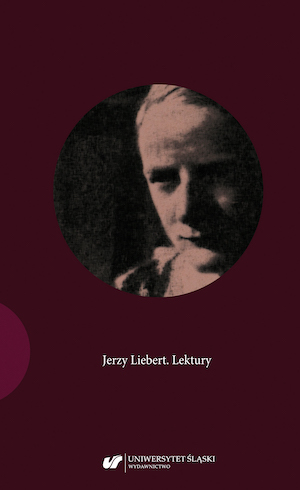
Jerzy Liebert. Reading
Jerzy Liebert. Lektury
Keywords: Jerzy Liebert; reading; Lyric; religiosity; demons
More...
Keywords: Jerzy Liebert; reading; Lyric; religiosity; demons
More...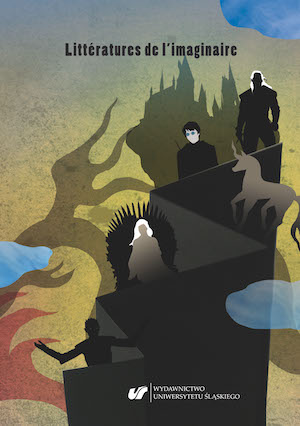
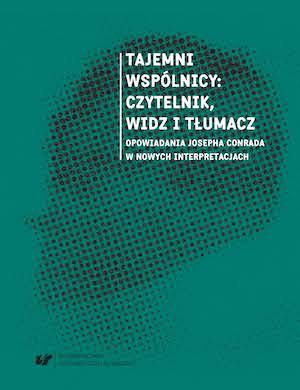
Keywords: Conrad; Joseph; short story; interpretation; adaptations of literature;literary translation;
The book is a collection of articles devoted to short stories by Joseph Conrad. The texts have been written by both Polish and foreign researchers of the writer’s fiction as well as English literary scholars. They propose reinterpretations of short prose works which, for most part, have not met an in-depth consideration in Conrad studies. The publication intends to demarginalize short forms and turn attention to their formal and thematic depth.Apart from literary analyses, the book also contains articles devoted to issues connected with film adaptations, translations and translation studies – these are, naturally, discussed on the basis of Conrad’s novels.The book is addressed to a wide scope of readers, including professional literary scholars and literature lovers. It will be particularly valuable to readers who just begin more serious studies on Conrad as writer whose skill found the short story to be a malleable form of artistic expression.The book includes indexes of names, fictional characters and literary works.
More...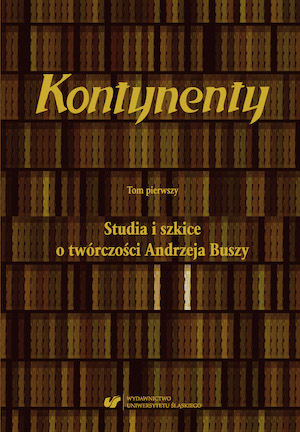
Keywords: Kontynenty; Andrzej Busza;poet;
The oeuvre of Andrzej Busza is undoubtedly among the most astonishing in Polish contemporary literature. What the foregoing largely stems from is the originality and singularity of his universal world vision, conspicuous poetic diction, and quite characteristic constellation of problems and issues, as well as Busza’s exceptional status as a bilingual writer, being in fact situated “in-between” at least two cultural traditions, but also his complex biography during which he has been meandering through the stage of an émigré, and then an emigrant. A poet, prose writer, translator, literary historian and critic, and a Joseph Conrad scholar – Busza remains one of the last, yet far from being the least, among the pro-independence representatives of Polish post-September 1939 emigration. Born in Kraków in 1938, he fled Poland with his parents on September 17 of the following year, spent the Second World War in the Middle East, to settle in England for the years 1947–1965 where he graduated from University College London with a degree in English. In 1965 he moved to Canada and took a tenure as a lecturer and then a professor of English literature at the University of British Columbia, Vancouver. During the years 1958–1962 he was a member of editorial team of such London-based literary journals as Merkuriusz Polski – Życie Akademickie, Kontynenty – Nowy Merkuriusz, and Kontynenty, in addition to having been a member of the poetic group originating from those journals. He was awarded the following literary prizes: the Kościelski Award (1962), the Władysław and Nella Turzańscy Award (2005), and the Association of Polish Writers Abroad award (2013). Among others, he has published eight books of poetry, a dozen or so short stories, multiple translations of Polish poetry into English (in cooperation with Bogdan Czaykowski, including poems by Miron Białoszewski, Iwaszkiewicz, Jastrun, Miłosz, Wierzyński), and a monograph on the so-called Polish backdrop of Joseph Conrad and the seminal impact of the Polish literary tradition on Conrad, as well as many scholarly articles on the author of Heart of Darkness. […]
More...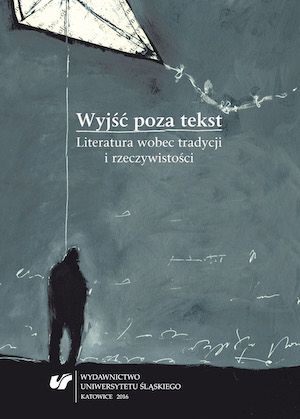
Keywords: tradition; reality
The collective monograph entitled Going beyond the text. Literature in reference to tradition and reality presents a variety of methodological attitudes and equally diverse literary and historical interests of a group of young researchers from the Universities of Warsaw and Silesia, and The Jagiellonian University and Adam Mickiewicz University. What binds all the sketches is the correlation of the literary texts and events of the contemporary literary life (the 20th and 21st centuries) with the literary and cultural tradition, as well as the attitude to reality, which has been understood and defined in different ways. The monograph presents the undertakings of historical and literary interpretation of the works by Joseph Mackiewicz (P.A. Kowalczyk), Stanislaw Lem and Jacek Dukaj (Sz. P. Kukulak), Jacek Malczewski (S. Trela), Jacek Kaczmarski (P. Marciniak), Janusz Głowacki (K. Olczak), Dorota Masłowska, Jacek Hugo-Bader and Joanna Bator (M. Olejniczak). Moreover, lesser-known episodes of the literary life (A. Grochowska, P. Potasińska, S.P. Kukulak, P. Urbańska, P.A. Kowalczyk, M. Mijatovic) have been recalled and interpreted. Modern comparative analysis has been undertaken (by R. Pulkowski and P. Urbańska), and original methodological suggestions have been put forward (by P. Potasińska, P. Zając and M. Olejniczak). However, the emerging from the accumulated volume of sketches picture of the condition of the literature and its ‘relation to reality’ and to the literary tradition, which is being contemporarily revived, is not full, and even was not intended to be as such. The authors of the individual chapters of the monograph present there their cognitive intuitions, rather than advance ‘firm’ historical and literary or theoretical thesis. This is also in accord with the intention of the editors of the monograph – to present a panorama, a historical and literary catalog of the problems faced by researchers in the middle of the second decade of the twenty-first century. And what is more, to do this without attempting to settle the question whether this ‘project of the future’, i.e. of the future literary studies in Poland, will materialize and will be developed and added into future monographs by the researchers who have just started their scientific career, or it will be merely an episode that will not be further elaborated on in future research or monographs. The monograph presents two perspectives: 1. traditional, historical, being apparently in accordance with the the principle that if something has happened, and if some text has been written, it is subject to the description and interpretation; 2. ‘involved’ – putting important questions about the status of literature ‘here and now’, about being a literary scholar and humanist in the post-modern civilization. It is just these elements, wherein the significance and relevance of the monograph Going beyond the text. Literature in reference to tradition and reality should be looked for. On another level, it might be written that the articles collected in the monograph constitute a kind of incomplete panorama of what is going to happen in Polish literary studies in the coming years.
More...